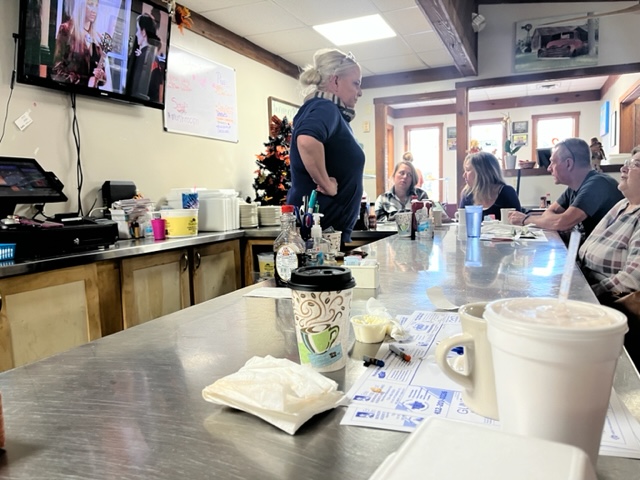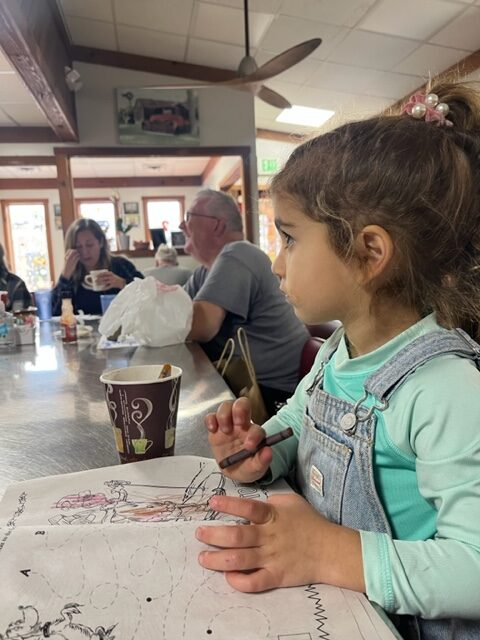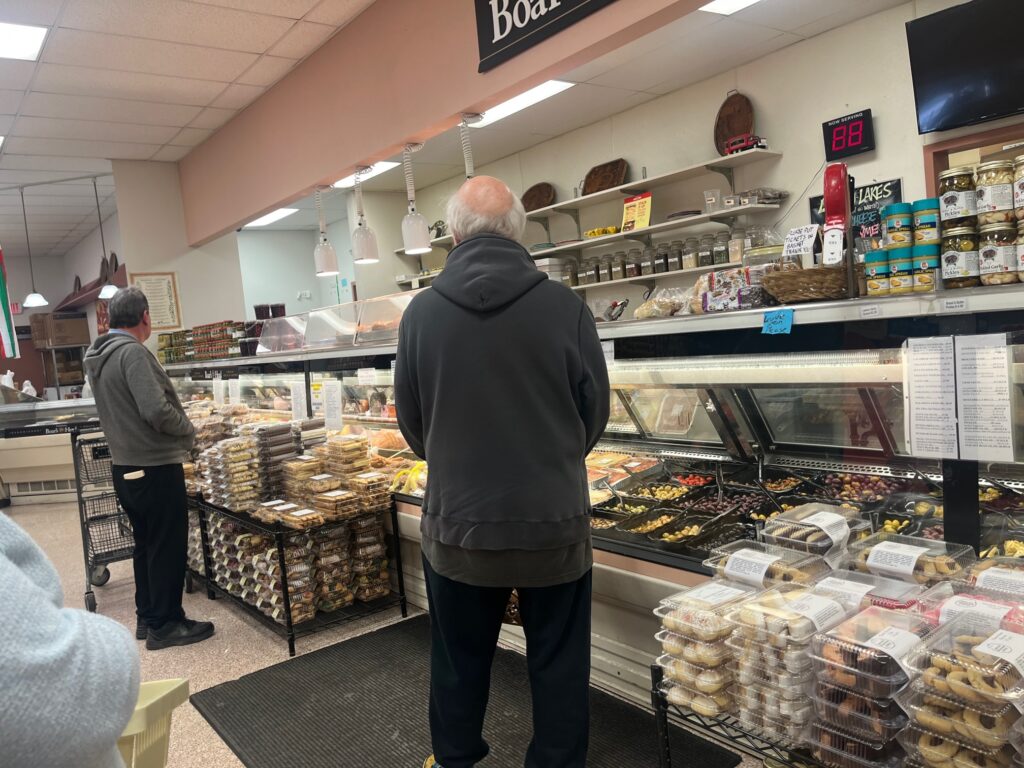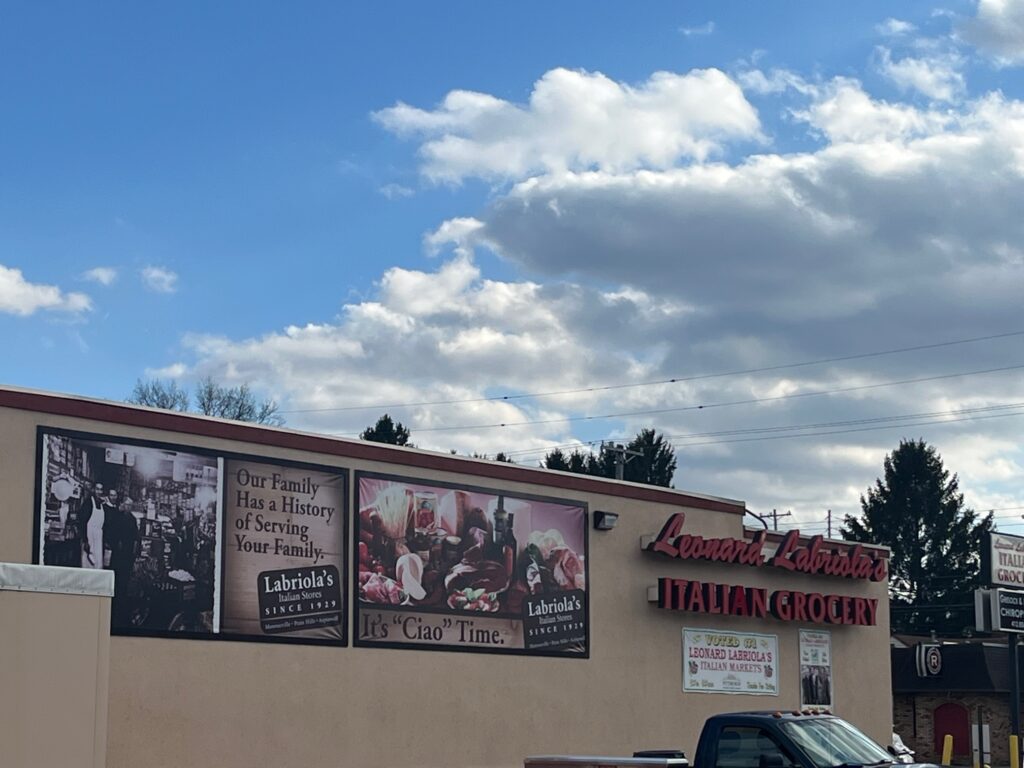EXPORT, Pennsylvania — Karen Wade was busy waiting on the breakfast crowd, many of them evidently regular customers because they bantered back and forth on a first-name basis, when my 3-year-old granddaughter Louisa and I grabbed the last two empty spots along the shiny chrome counter of Wade’s Breakfast & Grille on Washington Avenue.

Within five minutes, Louisa was already having a conversation with 72-year-old Gloria and being rewarded for her cheerfulness with a sliver of Gloria’s pumpkin pie. Walter, who was sitting at the bend of the lunch counter, answered Louisa’s questions about why he was wearing overalls — he is a train engineer — and another gentlemen, whose name we never learned, sent her a piping hot, made-to-order cinnamon doughnut before we even placed our order.
This experience was not an exception but the daily rule at this small business in this tiny Westmoreland County town that derived its name because coal was once mined here and then exported.

Wade said she and her husband Alan opened the cheery diner in late 2019, just before COVID hit. It was their first foray into being small-business owners, and they survived the early days of the shutdown by keeping their doors open while all of the other big chain restaurants closed in the area.
“The silver lining, I would say, is we had only been open for a couple of months, so we did not have an option to close,” she said, practically.
So, while all of the other big chain restaurants across the region closed for two months, they were small enough to adapt and stay open.
“We just switched to takeout only and followed the rules, but with that being that, we were the only game in town, and I just posted on Facebook like once, twice a day, as much as that vessel would allow us, and we were just open and literally didn’t change the hours.”
“Consistency and trustworthiness earned us customers,” Wade said, underscoring what most Americans believe about the virtues of small businesses and why they remain among the most trusted institutions in America, according to studies by Gallup and Edelman.
The Wades have been rewarded for their hard work by rarely having an empty seat in the diner on any given hour between 6:30 a.m. and 2 p.m. seven days a week. Saturday and Sundays usually have a line around the corner, and even in the chilly winter months, customers will sit outside to enjoy their signature “Sunrise Skillet,” sausage gravy and biscuits, stacks of pancakes, or their Cap and Cheese and Ruben sandwiches.
The small-business owner understands people value hard work and the dignity of work because most people work in small businesses. There are a whopping 33,185,550 small businesses in the United States that gainfully employ 61.7 million of us, nearly 50% of private sector employees in this country.
That means the ideal of localism is more prevalent in America than perhaps is understood by the boards that run larger institutions, academia, or media conglomerates, or by government officials.
Larger companies once understood that, back when they were headquartered in places where their products or services were made, but over the past few decades, they have lost that connection as they have grown distant both geographically and culturally from their customers.
A case in point was Budweiser’s decision to include politics and use an “influencer” to sell beer. Another was Target’s decision to sell Pride-related children’s clothing prominently during Pride month. Customers didn’t like being confronted with politics while shopping for beer or in department stores.
Small-business owners know that a 5.4% sales drop, which Target reported after it was boycotted, could severely hurt their bottom line and that they likely would need to close if they had to weather the weekly 30% sales drop Bud Light felt for nearly a year.
So most, not all, small businesses rarely engage in hot-button political and cultural topics. They just do what they do best: make and create good things that people want to buy and support.
Which is why, according to the Edelman survey, small family-owned enterprises are the most trusted businesses people frequent, well above privately held, publicly traded, and state-owned businesses.
Autumn Colamarino says she has known since she was 6 years old she wanted to own her own business. Twenty years later, she opened her beauty salon along Old William Penn Highway and began achieving her goals.

The vivacious 27-year-old is in the business of making people feel beautiful. Her shop is a calming sea-foam green, her customers range from young to not-so-young, and despite the challenges of costs for color, foils, shampoos, and instruments doubling twice over the past year, she’d rather be her own boss than work for anyone else.
She was not alone. Three young women with businesses similar to hers in the neighborhood were meeting Thursday to share their use of Instagram and other social media to grow their businesses.
“Localism creates trust,” she said. “I can develop that relationship, [but] if I worked for a big salon, I lose that ability to gain trust and ultimately control the relationship I develop with my customer.”
According to the most recent Trust & Access To Capital Survey, small-business owners like Colamarino and her friends are most likely to turn to each other for counsel and guidance, preferring to figure things out with people who are having similar experiences.
A few miles away, Gene Labriola is sitting in his compact office where people see him the moment they walk into his family’s grocery. It is one of five Labriola grocery stores that have been providing western Pennsylvanians with hearty epicurean choices for nearly 100 years.

Everyone yells “Hey Gene” as they walk by. The rows are narrow, the aromas from the freshly prepared lasagna, soups, or hot peppers in the deli fill the air, and despite the compact size, most of the people who enter this store buy everything they need to supply their families’ pantries so they can avoid the big-box grocers.
CLICK HERE TO READ MORE FROM THE WASHINGTON EXAMINER
A woman named Natale was waiting at the deli to get some fresh cheeses and a fish sandwich for Lent. It was crowded, but she said she didn’t mind the line nor the tight space: “The service here is the same as when I came with my Pap and then my mother. It is personal. They know my name, much of what they sell is homemade, and I know I am not just supporting the family. Shopping here supports my community.”
Plus, everything she buys is locally sourced, “This is why I shop small businesses,” she said. “I know maybe I pay a little more, but that’s OK. First of all, it’s good. Second of all, because ultimately people in the local counties around here benefit.”

